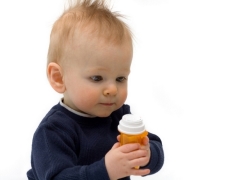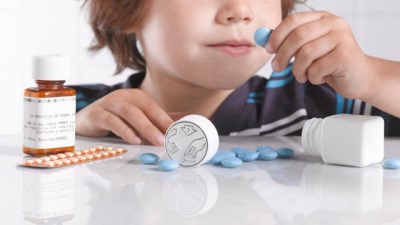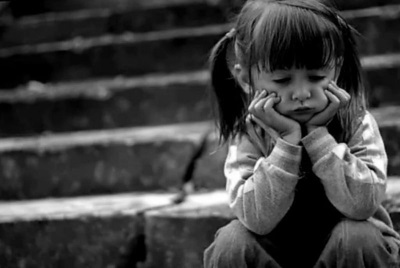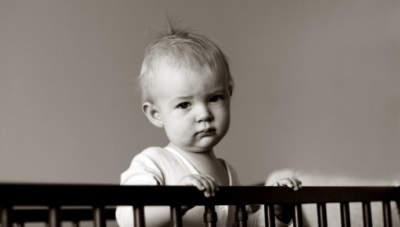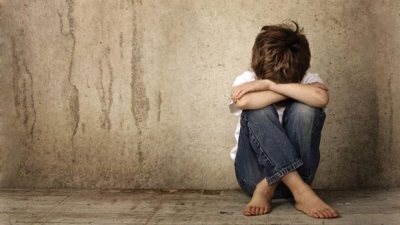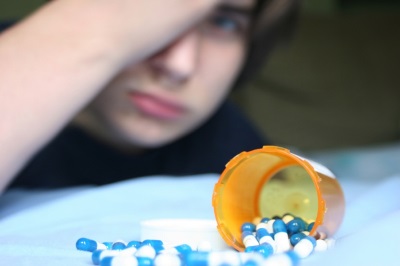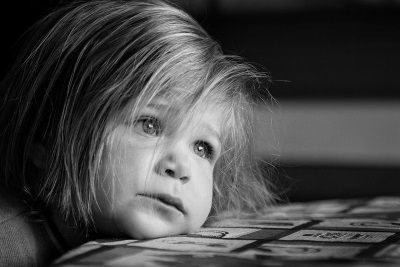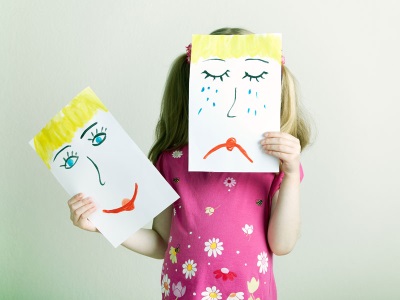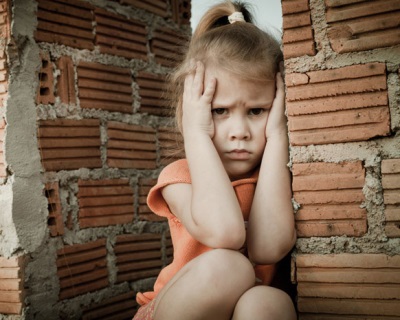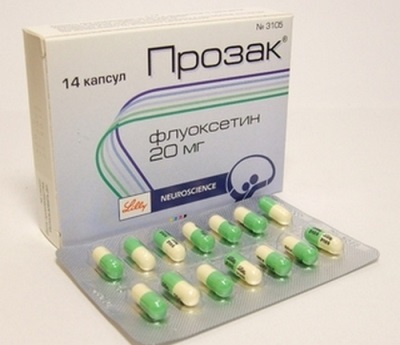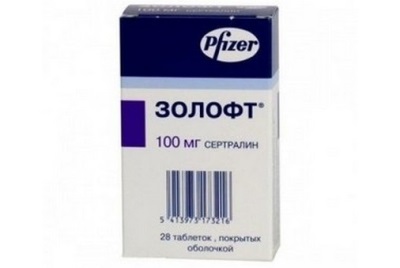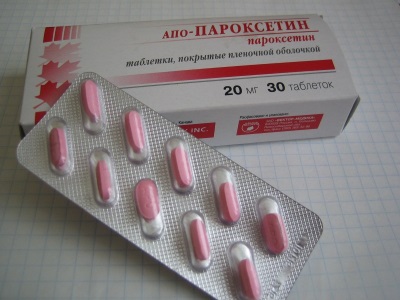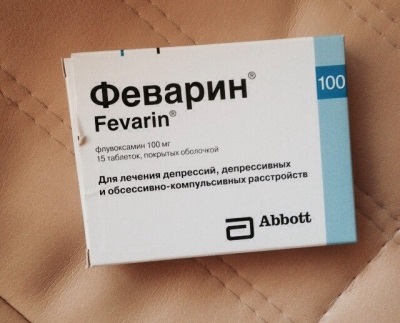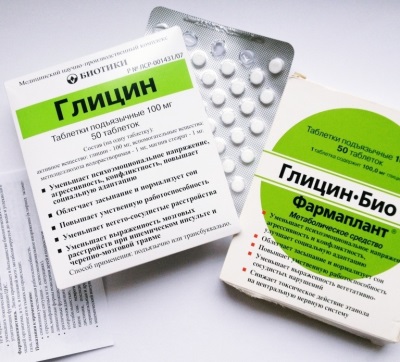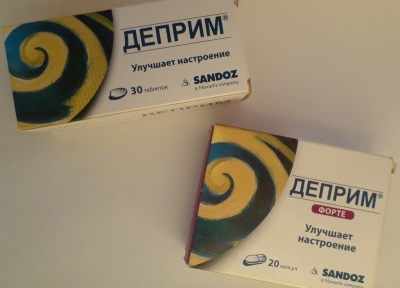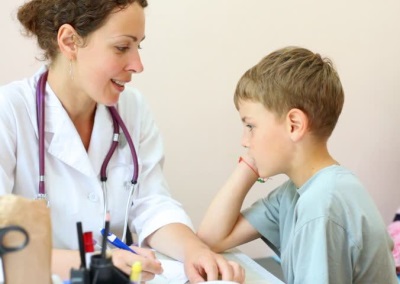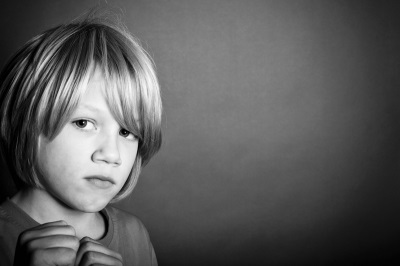Antidepressants for children
Complaining to depression has become fashionable. How often do we hear from the other person that he is depressed. Moreover, by this is meant anything - from ordinary stress and bad mood to increased anxiety. Often parents claim that their child had depression and are looking for an effective cure for it. Let's try to understand what real child depression is and how safe it is to treat it with antidepressants.
Depression, including children, is a painful psychosomatic condition. According to statistics, depression occurs in almost 40% of today's children and adolescents, but it is temporary, and, as a rule, retreats. If we talk about the most real - clinical depression, then it actually affects about 3% of children and 8% of adolescents.
If this disease is not treated in childhood, it can turn into serious mental abnormalities, children begin to practice deviant behavior. Often they commit suicide attempts. Sometimes these attempts end in the death of a child. The growth of depression and the natural tendency of adolescents to them is actively used by the organizers of the so-called “death groups” on the Internet.
The diagnosis of "clinical depression" can only be a psychiatrist. But any mother can tell the difference between a real disease and a depressive state.
Symptoms of Childhood Depression
Previously, scientists believed that children do not have depression. Modern discoveries in the field of psychiatry and psychology state the opposite.
In infants and children up to 3 years depression may be due to fetal hypoxiaother adverse factors during pregnancy, to a certain extent depression can be inherited.
In crumbs, it can be recognized by atypical behavior. While karapuzy learns to smile, roar and explore the world, children with clinical depression exist "cyclically" - the periods of crying alternate with periods of complete apathy. Babies do not gain weight well, even with regular and sufficient feeding.
Almost all the time when the baby doesn’t scream, he lies with his eyes wide open, his glance is devoid of meaning. Sick kids do not show any interest with bright rattles, toys, do not try to follow them with their eyes and reach out with their hands. Older kids (from 10-12 months old) can rhythmically sway in their crib from side to side, not responding to parents' attempts to make contact.
Children suffering from depression, much later begin to sit down, walk, in many ways are lagging behind in development.
In children from 3 to 6 years clinical depression manifests itself differently. This is the instability of emotions.
The child is actively looking for love and affection, then dramatically changes his mood and begins to show anger, aggression, irritability. At this age, depressed children are rarely withdrawn. In their behavior, attentive parents may also notice a certain “cyclicality” - periods of euphoria and hyper-excitement give way to a quiet cry. Gradually, the child stops playing, showing interest in cartoons and fairy tales. They can begin to fade hygienic skills.
At primary school age (from 7 to 12 years) Depression can manifest itself in different ways. Respecting the disease is always accompanied by sleep and digestive disorders. Children become isolated, isolated, refuse to communicate and play. They have low self-esteem, high level of anxiety.
Starting from 7-8 years old the child can tell about his self-esteem. Often with clinical depression, children begin to suffer from enuresis, constantly bite their nails and show no interest in learning.
In adolescence (12-15 years) clinical depression is often disguised as various school phobias. The child has a decrease in body weight, it is difficult for him to communicate, he is embittered and depressed.
Depression can trap anyone, at risk, children from dysfunctional families, families where parents and children who have experienced severe stress recently divorced.
So, you can think about depression if your child has:
- There was a weakening of interest in any activity.
- He is often agitated or inhibited, and this is manifested on the physical level (sharp, chaotic movements are replaced by sluggish movements).
- He is almost unable to concentrate attention, his memory is weak.
- He is aggressive and often speaks of fatigue.
- Within a month, a child lost more than 5% of body weight for no apparent reason.
If you notice these symptoms, it is not a reason to immediately “write” the offspring to the sick. This is just a reason to visit a child psychiatrist or a neurologist to discover the problem and start timely treatment if it is required.
Treatment of Child Depression
Treatment of clinical depression in children includes psychotherapy and antidepressants. Moreover, doctors often try to prescribe psychotropic drugs, rather than avoid them.
The traditional approach so far is that doctors try to “play it safe” when it comes to the health and safety of the child. Self-prescribing antidepressants for yourself or your baby is life threatening! To choose the right drug will help a specialist, taking into account the individual characteristics of the child.
Antidepressants
Antidepressants are psychotropic drugs, the main vocation of which is to restore the balance of "happiness hormones" and "stress hormones" in the body.
“Happy” includes dopamine and seratonin. Hormone stress (rage) is called norepinephrine. Antidepressants reduce stress and stimulate the production of seratonin and dopamine. It is their small number that doctors consider the main cause of depression.
Good or bad?
The cunning of antidepressants is that more than half of young patients are absolutely resistant to them, i.e. unresponsive. Usually it becomes clear after two weeks of taking the drug. Then the doctor changes the antidepressant. If there is no positive effect again, the medicine is changed again.
Some antidepressants, in addition to acting on receptors that are responsible for stimulating the production of “happiness hormones,” simultaneously act on the opioid receptors of the nervous system. This causes a mild narcotic effect, and, therefore, addiction. After the cessation of the medication can begin "breaking".
Also, doctors note another big minus in taking antidepressants - increases the likelihood of toxic liver damage.
Types of antidepressants
All existing antidepressants are divided into several types:
- Tricyclic antidepressants. Not suitable for the treatment of children, because they have very serious side effects, and at the physiological level can lead to heart block.
- Monoamine oxidase inhibitors. Also quite strong psychotropic drugs that children try not to prescribe. These include "Traniltsipromin", Pyrazidol, Fenelzin, Moclobemide.
- Antidepressants are atypical. These drugs can in some cases be prescribed to children and adolescents, but they should be taken in a hospital under tight medical supervision.
- Selective serotonin reuptake inhibitors. These are the psychotropic drugs most suitable for a growing organism. The most famous today and relatively safe.
How to give to children
Children psychotropic drugs are usually prescribed from the age of six. In rare cases, they are used for younger teens, but such a decision of the doctor should be more than reasonable. The instructions to antidepressants as a contraindication almost always indicate the children's age up to 18 years, which is why it is impossible to do without consulting a doctor.
Consider several drugs that are most often used in the treatment of mental disorders in children.
Fluoxetine (Prozac)
The most famous of the "children's" antidepressants. Available in pill form. Starting dosage starts from 20 mg once a day in the morning. Dose may be increased after 4 weeks. The list of side effects is quite long - from dizziness to an epileptic seizure. Cancellation syndrome lasts from 1 to 7 days.
Sertralin (Zoloft)
A very popular drug worldwide. Used to treat childhood depressions and anxiety, a number of phobias. As a rule, the initial dosage for patients older than 12 years is about 25-40 mg. Tablets are taken once a day, in the morning or before going to bed. The maximum daily dosage is 200 mg. Withdrawal syndrome with a gradual decrease in dosage lasts 1-2 weeks.
Paroxetine (Adepress)
These tables are not recommended for children. Teenagers appointed at the discretion of the attending physician. The usual dosage is 1 tablet per day with meals.
Fluvoxamine (Fevarin)
The doctor may prescribe this antidepressant to a young patient if he has already turned 8 years old. The daily dose begins with 50 mg and may gradually increase with insufficient action. The course of treatment is quite long - six months. The list of “side effects” is great, among them are headache, lethargy, fear, increasing anxiety, and a change in body weight.
There are also herbal preparations that have an antidepressant effect:
"Glycine"
Amino acid, which significantly improves the chemical reactions occurring in the brain. The drug is prescribed to children over 3 years old pill 3 times a day. Children under 3 years old - half a tablet three times a day.
“Deprim” (“Hypericum”, “Helarium Hypericum”, “Life 600”)
This is an extract of Hypericum. Take it to children over 12 years old need 1 tablet three times a day. Children from 6 to 12 years old - under the supervision of specialists, 1-2 tablets twice a day, excluding the evening. Children under the age of six years, the extract of Hypericum is not prescribed.
Novo Passit
You can take children from 12 years. These are extracts of dried herbs (St. John's wort, lemon balm, etc). It is prescribed for anxiety, sleep disorders, neurasthenia.
A number of homeopathic medicines or “Glycine».
To help antidepressants
One medication for treating depression and other mental disorders in children will not make much difference.
Requires comprehensive treatment.
- First of all, the doctor will hold a conversation with parents. He will try to convince them of the necessity and justification of taking psychotropic drugs. He will explain how to take the medicine correctly in order to maximally smooth out the "withdrawal syndrome" and avoid side effects.
- Then the specialist will assign a course of psychotherapy, during which the child’s behavior and way of thinking will be corrected, and the correction of “family” errors will be corrected - the relationship between the household will be corrected.
- The psychotherapist will teach the child to create motivation to learn and communicate, and also effectively solve problem situations. If the patient is still too small, he will be prescribed play therapy.
Many doctors believe that antidepressants perfectly help to cope with mental disorders in children and adolescents. In spite of this, the detailed effect of psychotropic drugs on the child’s body is still not fully understood. A warning about this is in the instructions for each antidepressant.
Some scientists are inclined to believe that these drugs destroy the structure of the child's psyche more strongly than the existing disease.For example, some antidepressants have long become "table" medications for children in the UK, USA. Their use in these countries is as natural as taking vitamins.
At the same time, there is a growing number of children's suicides, cases of incredible aggression and cruelty, when a schoolchild shoots a whole class and teachers, for example. Opponents of treating children with antidepressants claim that there is a direct link between these two facts.
About the causes of childhood depression and in what cases parents can help a child on their own, see the next video.
